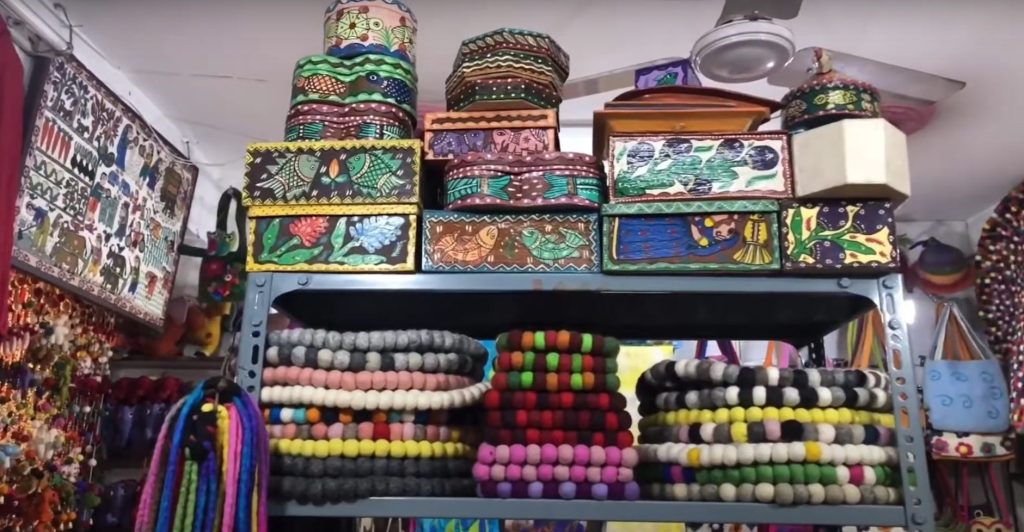
This is a step toward making the government’s “Make in Nepal” initiative a reality.
According to a recently issued rule, everyone who receives their wage from the state coffers should use as many domestic items as feasible.
According to the guideline, government employees can utilize and buy any Nepali product that costs up to 15% more than a foreign product in order to make the “Make in Nepal” campaign a reality.
According to Minister for Information and Communication Prithvi Subba Gurung, the government approved the “guideline for using domestic products in public entities—2081 BS” on Friday and mandated that public employees utilize domestic products as much as feasible. The Ministry of Industry, Commerce, and Supplies presented the idea.
According to Chief Secretary Ek Narayan Aryal, public employees should, to the greatest extent possible, use other items in their workplaces in addition to the uniform created in Nepal.
“The initiative’s goal is to encourage the general public to use Nepali products,” Aryal stated. “It will also help us become more self-reliant by increasing the production of different kinds of products within the country.”
No real progress has been made in the past few years, despite the fact that some private sector organizations have previously launched campaigns to “Make in Nepal” and “Make in Nepal—Swadeshi,” among others.
The Confederation of Nepalese Industries (CNI), in collaboration with government agencies, launched the “Make in Nepal-Swadeshi” campaign in 2021, when KP Sharma Oli was prime minister. In addition to creating over a thousand new industries, the program sought to increase the industrial sector’s share of the GDP from less than 14 percent to 26 percent by 2030. Along with aiming to increase the nation’s exports to $5 billion a year over the following five years, the campaign also planned to generate a sizable number of respectable jobs domestically. But these days, not many people are aware of the initiative.
At a recent follow-up event in Kathmandu, the CNI announced that 135 domestic companies had already been enrolled in the “Swadehi Campaign,” and that the products of those enlisted industries now use a standardized emblem with a rhinoceros on it.
The “Make in Nepal” objective was also included in the policy and program of the previous administration, which was led by Pushpa Kamal Dahal. In order to promote production, the government would offer suitable interest grants on taxes, power tariffs, and loans to cooperatives and the private sector, as well as promote the use of locally manufactured food items, shoes, medications, cement, and other items, according to the policy and program document.
In order to support the “Make in Nepal” and “Made in Nepal” campaigns, it further declared that it would safeguard domestic industries and goods through customs control, job banks, start-up funding, and business development centers.
Everything used in government offices, including tables and dustbins, should be domestically produced after the guidelines are released, according to Minister Gurung. He went on to say, “The ministers should also wear clothing made of domestic products.”
Chief Secretary Aryal, however, asserts that in order to execute the new ruling, the government must modify the Public Procurement Act. According to the Public Procurement Act, the lowest bidder shall be chosen for uniforms, commodities, and services in all government agencies. However, the government must review and alter the Act because the new guideline allows government employees to use and buy any Nepali product that is up to 15% more expensive than the foreign product.
“We are only permitted to purchase goods and services that have the lowest prices under the Procurement Act,” Aryal stated. In the event that a Nepali product is on the market but costs up to 15% more than a foreign one, we must still purchase the Nepali product even though it costs more. Therefore, we must change a few provisions in the Procurement Act.
The administration also determined at Friday’s Cabinet meeting to reject any stipulations when taking out loans from international lenders. Another minister stated, “If any lender is interested in lending us money, it should be based on our need and priority.” “Therefore, going forward, we must exercise caution when taking out loans.”
Nepal will have few alternatives after 2026 since its chances of receiving grants from bilateral and multilateral donors will decline once it leaves the least developed nations (LDCs). “However, we are equally worried about the potential debt trap and wish to develop a plan regarding loan acceptance and terms by determining our needs and requirements,” the minister stated.
The current government will serve a full term, and no one could replace it, Minister Gurung, who is also the government spokesperson, stated when he spoke to the media to inform them of the various Cabinet choices.
“An unfounded rumor that this government would not serve its entire three-year term has been circulating since the day it was formed,” Gurung stated. “These kinds of rumors against the government are being spread by some envious opponents.”











